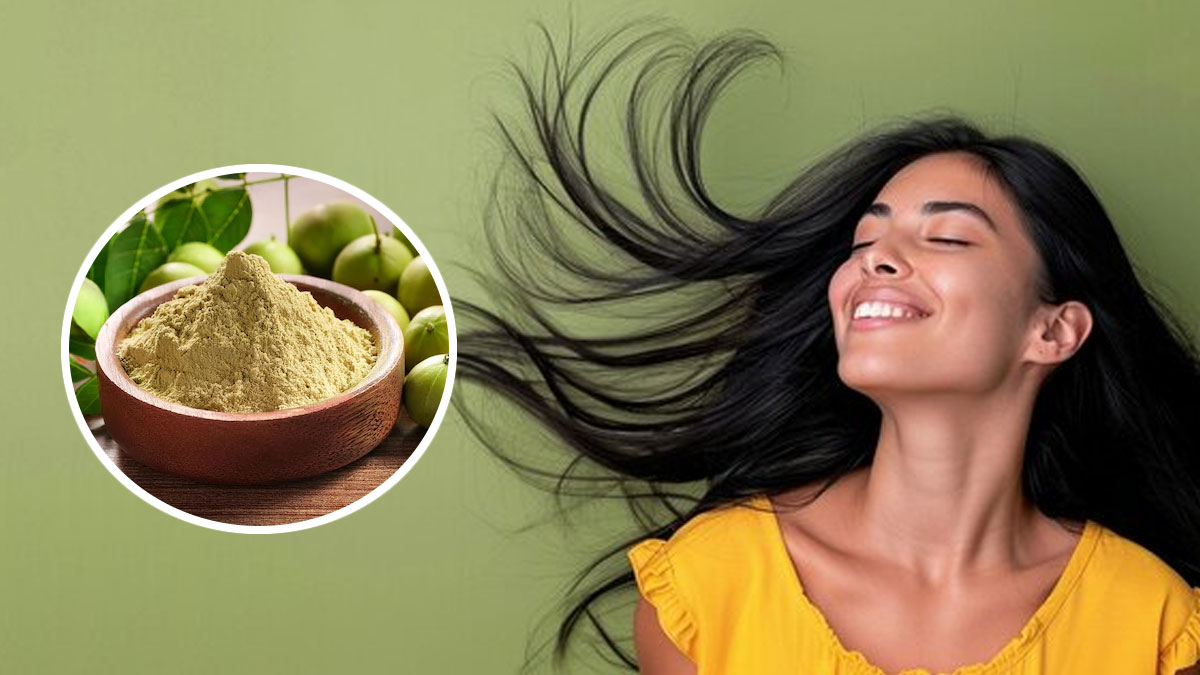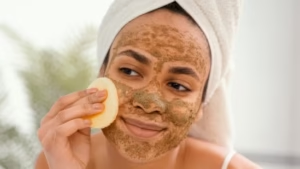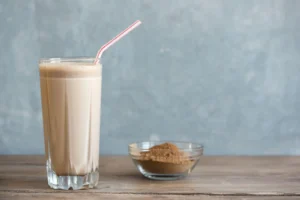Hair fall and thinning are common concerns that affect people of all ages. While genetics, lifestyle, and external factors play significant roles, Ayurveda takes a holistic approach by focusing on internal balance and natural remedies. According to Ayurveda, hair health is deeply connected to the balance of the three doshas: Vata, Pitta, Kapha. This guide explores Ayurvedic hair care tips for hair growth, types of oils and hair masks, hair-washing methods, and an FAQ section to address common concerns.
Why Does Hair Fall Happen?
Hair fall can be caused by various factors, including:
- Imbalanced Doshas: Each dosha governs specific aspects of your body, and an imbalance can weaken hair health.
- Vata imbalance: Leads to dry and brittle hair.
- Pitta imbalance: Results in heat-related issues like inflammation, premature graying, and thinning.
- Kapha imbalance: Causes excessive oiliness and scalp buildup.
- Nutritional Deficiencies: Lack of essential vitamins like biotin, iron, and zinc.
- Stress and Sleep Issues: Elevated stress levels and inadequate rest impact hair growth.
- Improper Hair Care: Using harsh chemicals, excessive heat styling, or overwashing the scalp.
- Health Conditions: Hormonal imbalances, thyroid disorders, or dandruff-related infections.
Ayurveda addresses the root cause of hair fall by rebalancing the doshas and adopting a personalized routine.
Ayurvedic Hair Oils for Dosha Balancing
Oiling the scalp is a vital part of Ayurvedic hair care. Regular oiling nourishes the scalp, strengthens hair roots, and enhances growth. Here are oils suited to each dosha:
For Vata Dosha (Dry and Brittle Hair)
- Recommended Oils: Sesame oil, Almond oil, or Bhringraj oil.
- Benefits: Deeply moisturizing, prevents dryness and split ends.
- Application Tip: Warm the oil slightly before application for better absorption.
For Pitta Dosha (Heat-Induced Hair Issues)
- Recommended Oils: Coconut oil, Brahmi oil, or Amla oil.
- Benefits: Cooling and soothing to reduce scalp inflammation and hair fall.
- Application Tip: Keep the oil cool and apply gently to avoid irritating sensitive scalps.
For Kapha Dosha (Oily and Heavy Hair)
- Recommended Oils: Neem oil, Mustard oil, or Tea tree oil (in small amounts).
- Benefits: Cleanses the scalp and controls excess oil.
- Application Tip: Use sparingly and wash off promptly to avoid scalp congestion.
The Importance of Scalp Massage
Scalp massage is a cornerstone of Ayurvedic hair care, offering both healthy hair growth and relaxation. It boosts blood circulation in the scalp, ensuring hair follicles receive essential nutrients and oxygen. This process strengthens roots, reduces hair fall, and promotes new growth. Additionally, scalp massage distributes natural oils, keeping the scalp hydrated and preventing dryness. It also relieves stress and improves sleep, both crucial for overall hair health. For best results, use warm oil suited to your dosha and gently massage in circular motions for 5–10 minutes several times a week.
Importance of Hair Oiling and Hair Masks
Hair oiling and hair masks are integral to Ayurvedic hair care. Oiling nourishes the scalp, strengthens hair roots, and protects against dryness and breakage. It enhances blood circulation and delivers essential nutrients directly to the hair follicles, promoting thicker and healthier growth. Hair masks, on the other hand, provide intensive nourishment, hydration, and cleansing. They address specific hair concerns like dryness, dandruff, or excess oil by delivering targeted benefits. Together, these practices restore the scalp’s natural balance, improve hair texture, and prevent hair fall, ensuring long-lasting health and vitality.
Ayurvedic Hair Masks for Healthy Hair
Hair masks are an excellent way to provide additional nourishment to your hair. Ayurveda recommends specific masks based on your dosha type:
For Vata Dosha
- Ingredients: Aloe vera gel, fenugreek powder, yogurt, and a few drops of sesame oil.
- Benefits: Hydrates and restores moisture to dry and brittle hair.
- How to Use: Apply evenly to the scalp and hair, leave for 30 minutes, and rinse with lukewarm water.
For Pitta Dosha
- Ingredients: Amla powder, hibiscus powder, coconut milk, and sandalwood powder.
- Benefits: Reduces heat, prevents premature graying, and minimizes hair fall.
- How to Use: Mix into a paste, apply to the scalp and hair, leave for 20–30 minutes, and rinse.
For Kapha Dosha
- Ingredients: Neem powder, reetha (soapnut) powder, and a small amount of lemon juice.
- Benefits: Detoxifies the scalp, removes excess oil, and prevents fungal infections.
- How to Use: Apply to the scalp as a cleansing mask, leave for 20 minutes, and rinse thoroughly.
Debunking Myths About Hair Oiling and Hair Masks
- Myth: Oiling causes dandruff.
- Fact: Dandruff occurs due to fungal infections or a dry scalp, not oiling. Using the right oil and avoiding overapplication prevents buildup and maintains scalp health.
- Myth: Hair masks are only for damaged hair.
- Fact: Hair masks benefit all hair types by enhancing moisture and addressing specific concerns, even for healthy hair.
- Myth: You should oil your hair every day.
- Fact: Oiling 2–3 times a week is sufficient. Overoiling can clog pores and attract dirt, especially for oily scalps.
Things You Shouldn’t Do to Your Hair
To maintain healthy hair, avoid the following habits:
- Overwashing: Stripping natural oils by washing hair daily can lead to dryness.
- Excessive Heat Styling: Regular use of blow dryers, straighteners, or curling irons weakens hair.
- Tight Hairstyles: Constantly tying hair tightly can cause breakage and traction alopecia.
- Skipping Trims: Neglecting regular trims leads to split ends and unhealthy hair growth.
- Harsh Chemicals: Avoid sulfates, parabens, and dyes that damage hair.
- Rough Towel Drying: Rubbing wet hair harshly with a towel can cause breakage; instead, pat gently.
By avoiding these practices, you can preserve your hair’s natural health and strength.
FAQs on Ayurvedic Hair Care
Can I leave oil on my scalp overnight?
- Yes, leaving oil overnight is highly beneficial for deep nourishment, especially if you have dry hair.
How long does it take to see results with Ayurvedic remedies?
- Consistency is key. Visible improvements may take 4–6 weeks of regular practice.
Can I use Ayurvedic hair masks if I don’t know my dosha?
- Yes, you can use multi-dosha masks like henna, shikakai, or triphala, which suit all hair types.
THE POST YOU MAY LOVE: Exfoliation 101: The Secret to Radiant Skin and Healthy Hair
Conclusion
Ayurveda’s holistic approach to hair care focuses on balancing your doshas and nourishing the scalp with natural ingredients. Whether you’re dealing with dryness, hair fall, or excess oil, Ayurvedic oils and hair masks offer tailored solutions for long-lasting results. By combining these practices with a balanced diet, stress management, and proper sleep, you can achieve truly healthy and vibrant hair. Patience and consistency are key—embrace these time-tested remedies and let nature work its magic!




